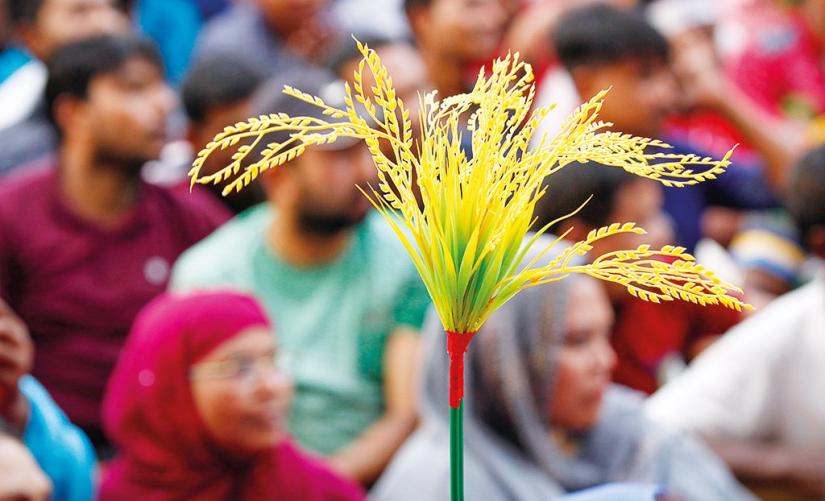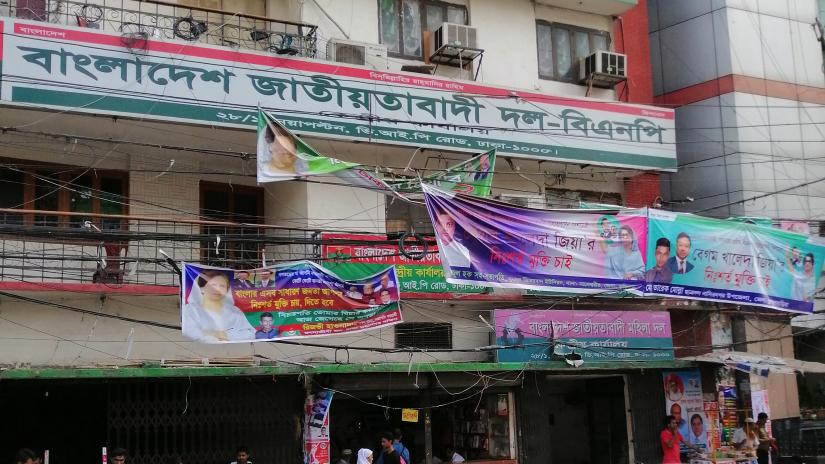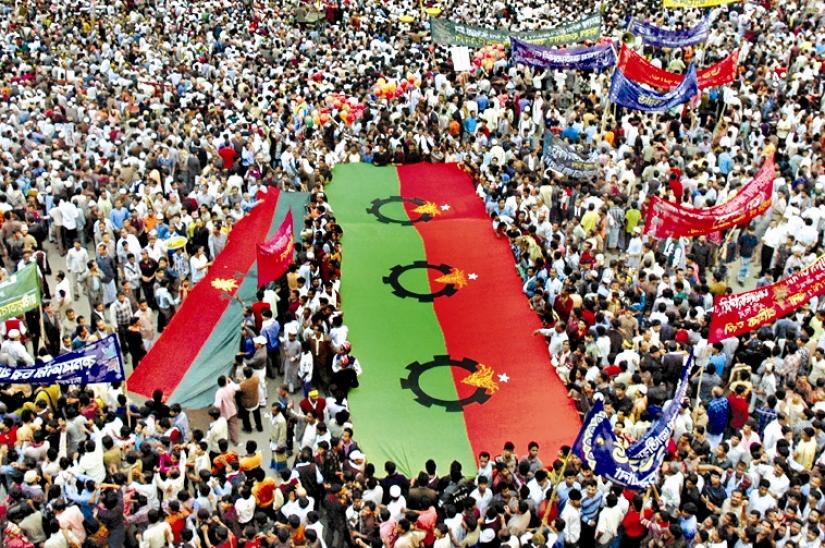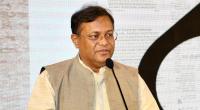 Bangladesh Nationalist Party (BNP) celebrates its 41st founding anniversary across the country on Sunday (Sep 1).
Bangladesh Nationalist Party (BNP) celebrates its 41st founding anniversary across the country on Sunday (Sep 1).
BNP and its associate bodies have taken up elaborate programmes like holding discussions, taking out colourful rallies, hoisting party flag and placing wreaths at the grave of party founder, to mark the day.
The party flag will be hoisted atop BNP’s Nayapaltan central office and all other offices across the country at 6am on Sunday.
Though, BNP, one of the two most important political parties in the country, finds itself in a quandary.
The party has been out of power since 2006. It suffered a landslide defeat in the 2008 polls, boycotted the 2014 polls, threatened to boycott the sitting parliament after winning only six seats but joined anyway.
The party's top leadership is in disarray. Chairperson Khaleda Zia is in prison, serving a five-year sentence in a fraud case, and acting chairperson Tarique Rahman, a fugitive, is in self-imposed exile in London for nearly 10 years.
Party leaders agrees that it is now facing the most challenging time since it was formed four decades ago by former president Ziaur Rahman on September 1, 1978.
Since 1990, the BNP has been out of parliament on only two occasions – the 2007-08 political crises, and after boycotting the 2014 polls.
Khaleda Zia served as the party's chairperson from 1983. The party has been in power thrice – a full term from 1991-96, a brief term (12 days ) following a controversial election that the Awami League boycotted in February 1996, and another full term from 2001-06.  A PROLONGED PERIOD OF CRISIS
A PROLONGED PERIOD OF CRISIS
Commentators say the BNP has zero political presence, mostly limited to press conferences or public discussions.
Pro-BNP intellectual and former Dhaka University vice-chancellor Emazuddin Ahmed believes the core challenge BNP facing is to free Khaleda Zia.
“I do not think it was wrong for them to join the parliament. I would say decisions made depend on the situation. There are no wrong decisions in a party. But BNP’s failure to turn things around is a sign of weakness,” he said.
Political commentator Dr Zafrullah Chowdhury says: “BNP has no concern for itself. They cannot free Khaleda and look to India to support them. They cannot hold public programs.”
In the last 18 months, the party has failed to mount popular support for Khaleda’s release.
The BNP turned violent in a two-year movement before and after the 2014 parliamentary elections, demanding the restoration of the caretaker government provision and new elections under a non-partisan government.
Months of protests that preceded the Jan 5 election, in which scores of people were killed and hundreds of vehicles destroyed in arson attacks, badly tarnished the party’s image. The BNP’s alliance with Jamaat-e-Islami, a party that sided with Pakistan during the 1971 Liberation War, was already a liability.
The BNP’s alliance with Jamaat-e-Islami, a party that sided with Pakistan during the 1971 Liberation War, was already a liability.
BNP Secretary General Mirza Fakhrul Islam Alamgir questioned why the government did not ban Jamaat if it was so disturbed with the party's wartime role.
Jamaat-e-Islami was stripped of its registration by the Election Commission in October 2018.
“Our position is clear. We do not believe in their political ideology of Jamaat-e-Islam. The coalition is only because of the votes they bring,” he explains.
Many party members are also disappointed with the decision to join the parliament despite threatening to boycott it after calling it “illegal.”
Fear of incarceration, assault, and other threats have also kept the party off the streets.
CAN BNP MAKE A COMEBACK?
“Our goal now is to strengthen the party and prepare for a firm movement,” said Standing Committee member Amir Khosru Mahmud Chowdhury, a statement that party leaders have been making since they lost the 2008 polls.
 Politics
Politics
31174 hour(s) 21 minute(s) ago ;
Afternoon 05:15 ; Tuesday ; May 07, 2024
41st founding anniversaryWhere does the BNP go from here?
Send
Nawaz Farhin Antara
Published : 09:15, Sep 01, 2019 | Updated : 09:37, Sep 01, 2019
Published : 09:15, Sep 01, 2019 | Updated : 09:37, Sep 01, 2019
0 ...0 ...
/srj//
Topics: Top Stories
- KOICA donates medical supplies to BSMMU
- 5 more flights to take back British nationals to London
- Covid19: Rajarbagh, Mohammadpur worst affected
- Momen joins UN solidarity song over COVID-19 combat
- Covid-19: OIC to hold special meeting
- WFP begins food distribution in Cox’s Bazar
- WFP begins food distribution in Cox’s Bazar
- 290 return home to Australia
- Third charter flight for US citizens to return home
- Dhaka proposes to postpone D8 Summit
Unauthorized use of news, image, information, etc published by Bangla Tribune is punishable by copyright law. Appropriate legal steps will be taken by the management against any person or body that infringes those laws.
Bangla Tribune is one of the most revered online newspapers in Bangladesh, due to its reputation of neutral coverage and incisive analysis.
F R Tower, 8/C Panthapath, Shukrabad, Dhaka-1207 | Phone: 58151324; 58151326, Fax: 58151329 | Mob: 01730794527, 01730794528


